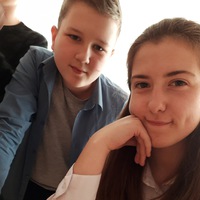
1.Перепишіть подані нижче речення та визначте в кожному з них видо-часову форму і стан
дієслова-присудка 1. Our laboratory will soon be provided with the most up-to-date equipment. 2. These books are sold everywhere. 3. The letter has just been signed by the director. 4. The event had been reported by the newspaper, before they arrived home. 5. Automatic mines are being designed, where robots will work in rich coal deposits at a depth of three to five kilometers where human beings are unable to operate. 2.Підкресліть Participle I, Participle II, Perfect Participle та визначте їх форму. 1. Being very tired, we refused to go for a walk. 2. Having lived a few years in England, he knew English properly. 3. We have received the contract signed by the representative of the firm. 4. Being placed in a liquid, a body sinks until it has displaced its own weight of the liquid. 5. Natural radioactivity having been discovered, many scientists became interested in it. 0
0
 0
0
Ответы на вопрос
 Внимание! Ответы на вопросы дают живые люди. Они могут содержать ошибочную информацию, заблуждения, а также ответы могут быть сгенерированы нейросетями. Будьте внимательны. Если вы уверены, что ответ неверный, нажмите кнопку "Пожаловаться" под ответом.
Внимание! Ответы на вопросы дают живые люди. Они могут содержать ошибочную информацию, заблуждения, а также ответы могут быть сгенерированы нейросетями. Будьте внимательны. Если вы уверены, что ответ неверный, нажмите кнопку "Пожаловаться" под ответом.

Ответ:
Объяснение:
1. Речення та їх видо-часова форма та стан дієслова-присудка:
1. Our laboratory **will soon be provided** with the most up-to-date equipment. (Майбутній час, пасивний стан)
2. These books **are sold** everywhere. (Теперішній час, пасивний стан)
3. The letter **has just been signed** by the director. (Present Perfect, пасивний стан)
4. The event **had been reported** by the newspaper before they arrived home. (Past Perfect, пасивний стан)
5. Automatic mines **are being designed**, where robots **will work** in rich coal deposits at a depth of three to five kilometers where human beings **are unable to operate**. (Present Continuous, майбутній час, Present Simple, Present Simple, Present Simple)
2. Виділені Participle I, Participle II, Perfect Participle та їх форми:
1. Being very tired, we **refused** to go for a walk. (Participle I - Present Continuous)
2. Having lived a few years in England, he **knew** English properly. (Participle II - Past Perfect)
3. We have received the contract **signed** by the representative of the firm. (Perfect Participle)
4. Being placed in a liquid, a body **sinks** until it has **displaced** its own weight of the liquid. (Participle I - Present Continuous, Participle II - Present Simple)
5. Natural radioactivity **having been discovered**, many scientists **became** interested in it. (Perfect Participle, Past Simple)
 0
0
 0
0

Речення та видо-часова форма:
Our laboratory will soon be provided with the most up-to-date equipment.
- Видо-часова форма: майбутній час, Passive Voice (буде надано)
- Стан дієслова-присудка: пасивний
These books are sold everywhere.
- Видо-часова форма: теперішній час, Passive Voice (продаються)
- Стан дієслова-присудка: пасивний
The letter has just been signed by the director.
- Видо-часова форма: Present Perfect, Passive Voice (було підписане)
- Стан дієслова-присудка: пасивний
The event had been reported by the newspaper, before they arrived home.
- Видо-часова форма: Past Perfect, Passive Voice (було повідомлене)
- Стан дієслова-присудка: пасивний
Automatic mines are being designed, where robots will work in rich coal deposits at a depth of three to five kilometers where human beings are unable to operate.
- Видо-часова форма: Present Continuous, Passive Voice (розробляються)
- Стан дієслова-присудка: пасивний
Визначення форми Participle:
Being very tired, we refused to go for a walk.
- Participle I: being tired
- Participle II: (not applicable in this sentence)
- Perfect Participle: (not applicable in this sentence)
Having lived a few years in England, he knew English properly.
- Participle I: having lived
- Participle II: (not applicable in this sentence)
- Perfect Participle: (not applicable in this sentence)
We have received the contract signed by the representative of the firm.
- Participle I: signed
- Participle II: (not applicable in this sentence)
- Perfect Participle: (not applicable in this sentence)
Being placed in a liquid, a body sinks until it has displaced its own weight of the liquid.
- Participle I: being placed
- Participle II: (not applicable in this sentence)
- Perfect Participle: (not applicable in this sentence)
Natural radioactivity having been discovered, many scientists became interested in it.
- Participle I: (not applicable in this sentence)
- Participle II: (not applicable in this sentence)
- Perfect Participle: having been discovered
 0
0
 0
0
Похожие вопросы
Топ вопросов за вчера в категории Английский язык
Последние заданные вопросы в категории Английский язык
-
Математика
-
Литература
-
Алгебра
-
Русский язык
-
Геометрия
-
Английский язык
-
Химия
-
Физика
-
Биология
-
Другие предметы
-
История
-
Обществознание
-
Окружающий мир
-
География
-
Українська мова
-
Информатика
-
Українська література
-
Қазақ тiлi
-
Экономика
-
Музыка
-
Право
-
Беларуская мова
-
Французский язык
-
Немецкий язык
-
МХК
-
ОБЖ
-
Психология
-
Физкультура и спорт
-
Астрономия
-
Кыргыз тили
-
Оʻzbek tili


























